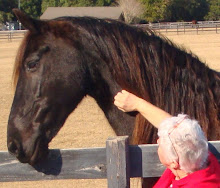God’s love is manifested in many ways, but often through the love of fellow humans. Each of us seeks a place where we can feel God’s love, a place of acceptance, a haven for, well, those who are like us in some ways. We may only share the commonality that each of us feels like an outcast from some other part of the world. We may share great ideas, or we may share many likes and dislikes. What holds us together is the feeling that we are accepted and loved by others in this place and, therefore, accepted and loved by God.
When structure gets in the way of God’s love manifest through the church, then we outcasts begin to see differences more than similarities. We become discontent and seek another place of acceptance, another place where we can feel God’s love, because, surely, God’s love for us is not in this place.
The national and international affairs of large groups like churches are directed toward concord, unity, oneness. And, that oneness often implies similarities, rejects differences, and alienates many units within that large group: leaders rebel, churches vote to leave, individuals feel outcast once more. The love of God and one another seems lost.
The most important hope offered by the church is taken from us when we argue and create divisions: the hope that God loves even me. Church is ultimately about relationships, and arguments damage relationships. If you disagree with my belief about a particular thing enough to want to worship separately from me, then I begin to wonder if God and I are still in accord. How can we be in accord if God is also in accord with someone who wishes me ill?
Certainly “the faith” has been held together by large groups working in concord. And, certainly “the faith” has been almost destroyed by these same groups. What if we focused on the smaller units of the church? Parishes and congregations are still showing love to those with whom they disagree. Pastors are still encouraging relationships with God and among the people of their group.
I know that many people in the world don’t like me because I’m gay or because I’m a woman or because I’m an educated woman. Some people don’t like me because I have white hair. But, within my parish church, I am accepted and loved; I feel God’s love in that place. I argue, I agree, I am hurt, I am healed – not by the national group or the international group – by those people within my congregation. Sometimes I just have to set aside the divisions of the world in order to see the hope of God’s love.
I can’t imagine anyone ever saying, “Now that’s a loving nation!” or “The Anglican Communion is a loving group.” I can say, “The people at St. Anne’s are loving.” or “The people at Christ Church accept me.” That kind of love tends to get lost in larger scale or more definitive structure. God’s love is mostly manifest through the good Samaritan, the woman at the well, Mary and her friends weeping at the death of her son, the wedding at Cana. The feeding of the five thousand is like a “mountain-top experience”, an unusual event that occurs very seldom – a miracle.
Tuesday, August 22, 2006
Subscribe to:
Post Comments (Atom)

No comments:
Post a Comment